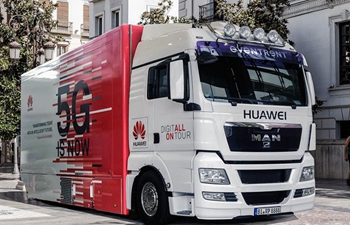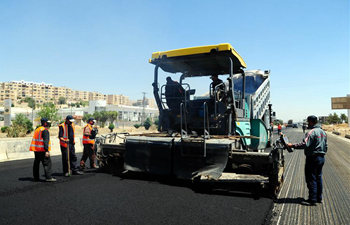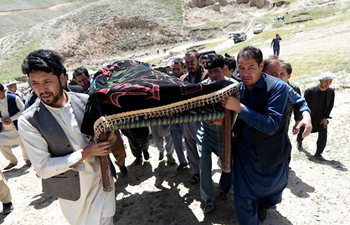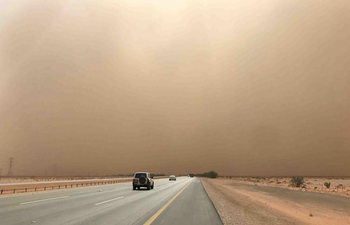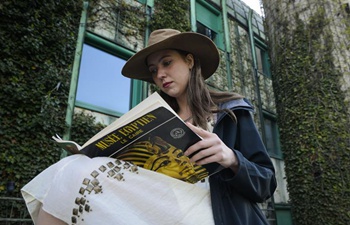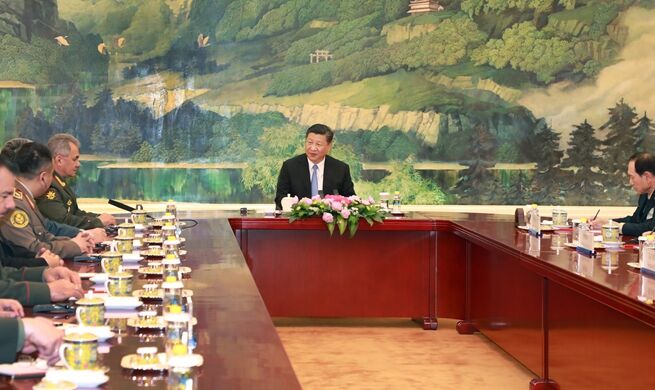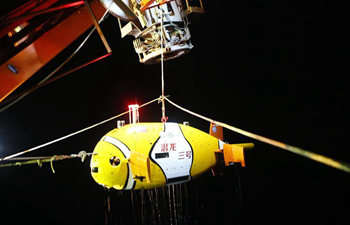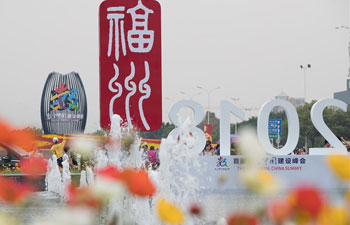
Photo provided by Venezuela's Presidency shows Venezuelan President Nicolas Maduro (C, front) posing with indigenous people during his campaign as candidate of the Broad Front, in the state of Bolivar, Venezuela, on April 23, 2018. Venezuelan President Nicolas Maduro on Monday hit the campaign trail as part of his reelection bid, holding a rally in San Felix, a town in the southern state of Bolivar. (Xinhua/Venezuela's Presidency)
CARACAS, April 23 (Xinhua) -- Venezuelan President Nicolas Maduro on Monday hit the campaign trail as part of his reelection bid, holding a rally in San Felix, a town in the southern state of Bolivar.
The candidate of the country's Broad Front, a coalition of the ruling socialist party and allied progressive parties, said fixing the country's battered economy would be his No. 1 priority.
"If you reelect me as president ... I pledge to definitively win the economic war and lead an economic revolution with the people and the working class," Maduro told supporters, adding "it will be my central task."
Maduro presented his national program for the 2019-2025 term, featuring five key themes: consolidating free public education, the public healthcare system, the social missions (or programs), building 5 million homes, and reforming the economy.
He also said he plans to make Bolivar state an important region for the Petro, Venezuela's oil-backed cryptocurrency and one of the innovations of his government to overcome financial and economic sanctions imposed by the United States and the European Union.
"In the coming months, I'm going to convert the immense state of Bolivar into the great Petro zone, as the cryptocurrency for trade exchange, export development and the generation of regional wealth," said Maduro.
"I call on you to prepare to vote and win the May elections with 10 million votes," said Maduro, a former bus driver and union leader whose political career took off in 1999, when he was elected to the Constituent Assembly that drafted Venezuela's current Constitution.
A year later, he was elected deputy of the National Assembly and by 2005 became president of the legislative body. In 2006, Maduro was appointed Minister of Foreign Affairs, a position he filled until 2013, the year Chavez died and Maduro was elected to succeed him.




